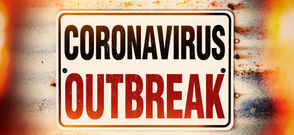Southwest Airlines on Thursday forecast a potential drop in unit revenue for the third quarter…

Which US States Still Have COVID-19 Restrictions?
Since COVID-19 first began sweeping the U.S. and was elevated to pandemic status by the World Health Organization (WHO) in March 2020, it has been left up to individual states’ governments to set their own policies aimed at stemming its spread.
Over the past 16 months, we’ve watched state and jurisdictional administrations implement their own particular restrictions and requirements regarding interstate travel in efforts to prevent new surges within their own borders; even as Americans tried to relieve their cabin fever by taking domestic road trips, and traveled across state lines to see family and friends during the holidays.
ADVERTISING
Now, nationwide infection rates have dropped dramatically in the months since COVID-19 vaccines were first made widely available. Feeling that we’ve finally gained the upper hand over the virus, most state governments have repealed their former restrictions for out-of-state visitors, but there are still a few holdouts.
Here’s a look at the states that have yet to drop all domestic traveler requirements and fully reopen their economies.
Hawaii:
Hawaii has maintained some of the toughest policies toward travelers throughout the pandemic, with Governor David Ige being extremely wary of overwhelming the islands’ limited healthcare systems and resources, maintaining Hawaiians’ health as his foremost priority.
—As of July 8, the state will waive quarantine requirements for fully vaccinated U.S. travelers (meaning that at least 14 have elapsed since receiving their final dose).
—Presently, Hawaii’s Pre-Travel Testing Program requires visitors from the mainland to present a negative NAAT-type COVID-19 test taken within 72 hours of arrival if they want to bypass an otherwise standard 10-day quarantine. Note that the testing must have been administered by one of the state’s Trusted Testing Partners.
—Fully vaccinated travelers seeking exemption from the testing requirement must upload their CDC-issued vaccination record card to the state’s Safe Travels Program website and carry that card with them upon arrival in the state.
—Unvaccinated travelers must also upload their test results to the state’s online Safe Travels form, which will then send them a QR code to present to airport screeners upon arrival. Those who haven’t uploaded their results must have a printed hard copy in hand upon arriving in Hawaii.
—Interisland travel rules have eased significantly, with all travelers who aren’t in quarantine now being free to travel between islands without additional requirements.
—The state maintains a mandate that everyone aged five and older must wear a face mask in indoor public spaces, though masks are no longer required outdoors.
*For more detailed information, visit Hawaii’s official website.

Kansas:
Kansas continues to apply COVID-19 quarantine and testing measures to highly specific and ever-changing sets of travelers, based upon their point of origin and recent travel history. As of the most recent rules update on July 1, persons who must quarantine upon entering the state of Kansas include those who:
—Traveled on or after July 1 to Brazil, Namibia, Oman or Saint Kitts and Nevis.
—Traveled on or after June 17 to Kuwait or Mongolia.
—Traveled on or after June 3 to Colombia or Suriname.
—Traveled on or after May 20 to Costa Rica or French Guiana.
—Traveled on or after May 6 to Maldives or Seychelles.
—Traveled on or after April 22 to Argentina.
—Traveled on or after April 8 to Uruguay.
—Traveled between June 17 and July 1 to Saint Martin.
—Traveled between June 3 and July 1 to Chile or Paraguay.
—Traveled between April 22 and July 1 to Bahrain.
—Attended any out-of-state mass gatherings of 500 or more where individuals did not socially distance (six feet) and wear a mask.
—Been on a cruise ship or river cruise on or after March 15, 2020.
Visitors that fall under these categories must isolate from seven to 10 days, depending upon whether or not they get tested for COVID-19 on Day 6 of their quarantine. Those who receive a negative result after testing on their sixth day will be released from quarantine on Day 8, rather than Day 11.
Fully vaccinated visitors are exempt from quarantine requirements as long as their final dose was administered at least two weeks prior.
*For more detailed information, visit Kansas’ official website.

Rhode Island:
Unvaccinated or partially vaccinated domestic travelers entering for non-work purposes from “hot spot” states (meaning they have a COVID-19 positivity rate higher than five percent) must either arrive with proof of a negative COVID-19 test taken within 72 hours of their arrival or quarantine for 10 days. Travelers may also test following entry into the state, but must quarantine until receiving negative results.
—Rhode Island’s ‘restricted states’ roster, last updated on July 6, currently includes 12 U.S. states.
—Domestic travelers to Rhode Island who are fully vaccinated (i.e., at least 14 days have lapsed since their final dose) are exempted from quarantine or testing requirements.
—Travelers who’ve tested COVID-19 positive in the past 90 days and have completed their isolation period are also exempt from quarantine and testing rules, provided they can supply proof.
—Those arriving at or departing from Rhode Island T. F. Green International Airport can take a rapid test for free, with results ready in 15 minutes.
*For more detailed information, visit Rhode Island’s official website.

Washington, D.C.
Domestic travelers who aren’t fully vaccinated will need to provide the negative results of a COVID-19 test administered no more than 72 hours prior to entering Washington, D.C.
—Travelers from Maryland and Virginia, and those staying in the District for less than 24 hours are exempt from testing requirements.
—Testing requirements are also waived for visitors who are fully vaccinated and those who’ve recovered from a confirmed case of COVID-19 within 90 days of travel. Travelers should carry documentation to this effect with them.
*For more detailed information, visit the District’s official website.




